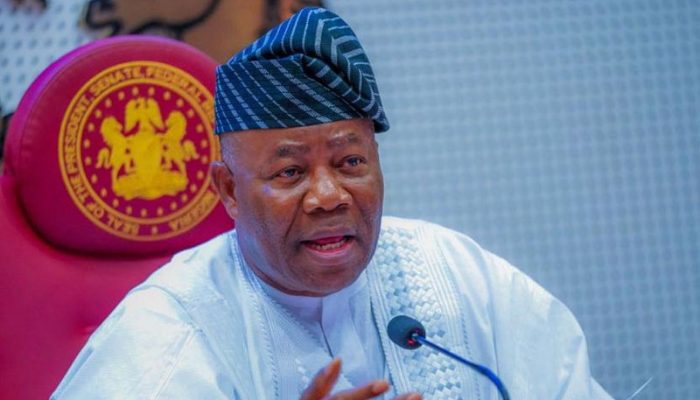Senate President Godswill Akpabio has shed light on the recent defections of senators to the All Progressives Congress, APC. According to Akpabio, the lawmakers are joining the APC due to their perception of President Bola Tinubu as a unifying figure for the nation and its political parties.
Akpabio recently led a delegation of lawmakers, including Cross River North Senator Agom Jarigbe and Bauchi North Senator Kaila Samaila, to a meeting with President Tinubu at the State House in Abuja. Both Jarigbe and Samaila had defected from the Peoples Democratic Party, PDP, to the APC.
Speaking to State House correspondents after the meeting, Akpabio attributed the defections to the lawmakers’ patriotic sentiments and confidence in President Tinubu’s leadership. He also cited the president’s economic policy reforms as a key factor in their decision to join the APC.
The Senate President described the defected lawmakers as “Mr President’s children and supporters,” emphasizing their admiration for President Tinubu as the father of the nation and all political parties. Akpabio noted that although Jarigbe and Samaila initially joined the Senate on different party platforms, they were drawn to the APC due to President Tinubu’s policies, which have reportedly improved the nation’s economic outlook and revenue generation.
Akpabio characterized the lawmakers’ defection as a demonstration of patriotism, driven by their desire to contribute to the nation’s development under President Tinubu’s leadership. The Senate President’s remarks provide insight into the motivations behind the recent wave of defections to the APC, highlighting the significance of President Tinubu’s economic policies and leadership style in attracting support from lawmakers across party lines.
As the APC continues to consolidate its position, the influx of new members is expected to bolster the party’s influence in the Senate and potentially shape the nation’s legislative agenda. The developments underscore the dynamic nature of Nigeria’s political landscape, where alliances and affiliations can shift in response to changing circumstances and policies.
